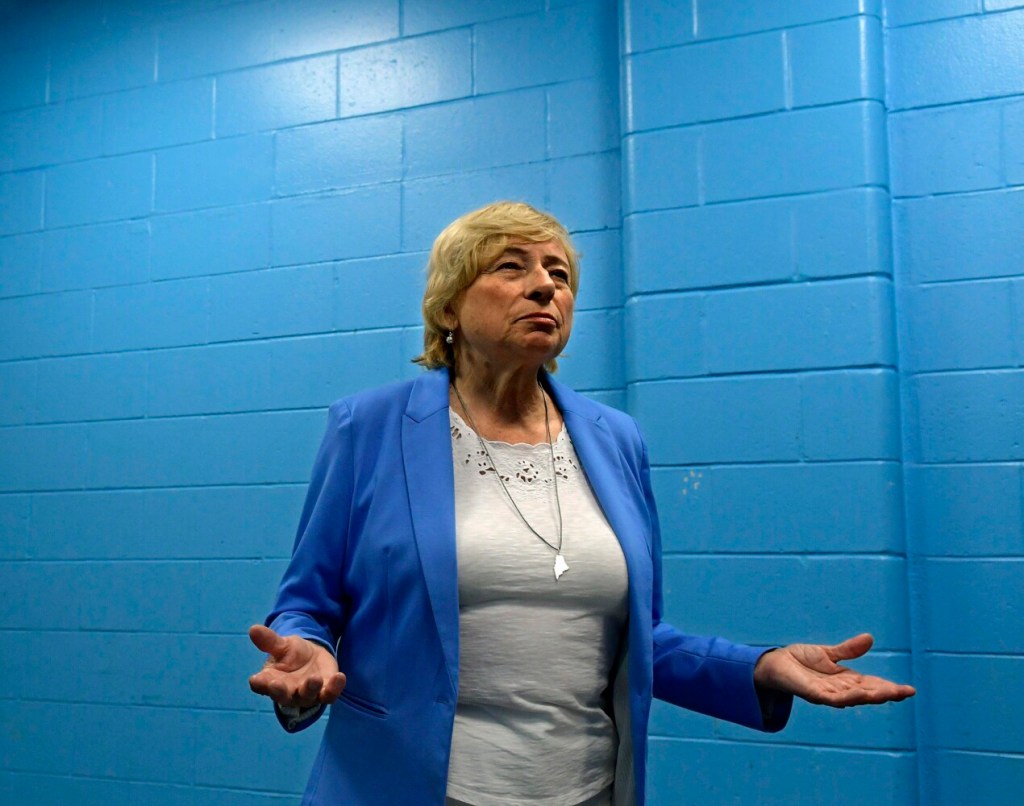The opioids conference at the Augusta Civic Center on July 15, called Turning the Tide, was very informative as well as challenging. And the turnout of 1,200 people was amazing. (“Governor’s opioid summit brims with ideas for solutions to crisis,” July 15).
My brother Gordon Smith, who Gov. Janet Mills selected to lead the state’s opioid initiatives, organized the conference and moderated some of the presentations. I’m very proud of Gordon, who is working incredibly hard.
The governor’s speech was very good. She has tackled the drug crisis as a top priority, from expanding Medicaid to distributing the overdose-reversing drug naloxone. And many speakers came from other states to tell us about their work to address this awful problem.
I was particularly impressed with the presentations by Tom Coderre, senior adviser to the governor of Rhode Island; David Mara, senior adviser to the governor of New Hampshire; Dr. Mark Levine, Vermont’s commissioner of health; and Dr. Patrice Harris, president of the American Medical Association.
These states are doing a terrific job of helping those who are trying to end drug dependencies. But hearing about all they are doing, told me that Maine has a lot of work ahead if we are going to meet this challenge.
We are particularly short of facilities to house and help people through recovery. We were told of people who come for help and are told they have to wait a month for an appointment. Obviously, that is not going to work.
The two keynote speakers were really good too. Sam Quinones is the author of “Dreamland,” which focuses on the opioid crisis in Portsmouth, Ohio. Michael Botticelli was White House National Drug Control Policy director for President Barack Obama. I was surprised when Botticelli told us he is in recovery from alcohol and drug dependency.
Before each presentation, Gordon had arranged for a person in recovery to speak. One lady told us a tragic story of losing both her sons to drug overdose. A lot of tears were shed by her and her husband, who stood beside her during her talk, as well as by a lot of us in the audience.
I learned from her, as well as other speakers, that people needing help are not bad people. And they got hooked on drugs in many different ways.
Maine is making progress in meeting this challenge, including a significant reduction in prescriptions of opioids. Maine had a record 418 drug overdose deaths in 2017, and 354 deaths in 2018. But we still have a long way to go.
The talk by Margo Walsh, who founded MaineWorks, was particularly inspiring. Margo focuses on felons, guiding them through recovery and even finding them good jobs. She showed us a video of interviews with some of the people she has helped and it was impressive.
MaineWorks says it is “an innovative employment company with a social mission: to dignify the experience for people who face real barriers to workforce reentry, including people recovering from substance use disorder and people with felony convictions. We provide jobs in the field of construction, carpentry, masonry, roadwork, bridges, demolition, landscaping, and much more.”
But here is another problem. There is only one MaineWorks, and it is located in Portland. It would be awesome if their exceptional help could be provided statewide. I know that this is something Gordon, and the people working with him, are focused on. But it is an almost overwhelming challenge.
I can only hope that the inspiration we all experienced at this conference can spread statewide so that everybody dependent on drugs can access the help they need to recover and be successful in their life.
George Smith can be reached at 34 Blake Hill Road, Mount Vernon 04352, or georgesmithmaine@gmail.com. Read more of Smith’s writings at www.georgesmithmaine.com.
Send questions/comments to the editors.



Success. Please wait for the page to reload. If the page does not reload within 5 seconds, please refresh the page.
Enter your email and password to access comments.
Hi, to comment on stories you must . This profile is in addition to your subscription and website login.
Already have a commenting profile? .
Invalid username/password.
Please check your email to confirm and complete your registration.
Only subscribers are eligible to post comments. Please subscribe or login first for digital access. Here’s why.
Use the form below to reset your password. When you've submitted your account email, we will send an email with a reset code.